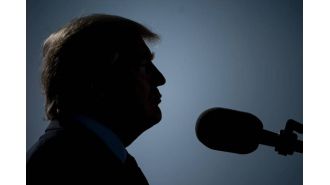The Missing Millions: Some States Are Still Waiting for the Gambling Windfall
More than 30,000 video slot and poker machines have been installed in the state and gamblers have lost more than $5 billion. Yet Illinois has failed to address the issue of gambling addiction in any meaningful way.
Several states, hoping for financial windfalls, quickly legalized sports betting after a U.S. Supreme Court ruling laid the groundwork in May 2018.
So far, revenue results have been mixed, though sports betting in these states became legal less than a year ago, according to an Associated Press analysis:
In some ways, it’s similar to what happened during the first full year of video gambling in Illinois, when revenues lagged far behind projections.
Through 2017, video gambling brought in $1.3 billion less than predicted by legislators, based on a ProPublica Illinois analysis. The state legalized video gambling in 2009, and the rollout lagged until the first machines appeared outside of casinos in 2012.
More than two dozen other states, including Illinois, are considering legalizing sports betting, with proponents projecting that it would raise million of dollars in tax revenue.
New York: Some lawmakers pushed mobile sports betting as part of the state’s budget legislation. Despite that, Gov. Andrew Cuomo and other Democrats opposed it and it wasn’t included in the final version of the budget. Supporters had said it could bring in an estimated $90 million in revenue for the state.
Montana: The Montana House overwhelmingly approved legislation that would legalize sports betting and place the state lottery in charge of issuing sports betting licenses. The state Senate approved a separate bill that would place the Montana Department of Justice in charge of regulating betting. Both proposals are pending.
Louisiana: A state legislator filed a bill in late March that would allow parishes to vote individually on the legalization of sports betting. The bill’s sponsor estimates tax revenues would increase by $20 million to $40 million with widespread approval.
Gold Rush Gaming is one of Illinois’ largest video gambling machine operators. It also recently participated in a public high school internship program.
A ProPublica Illinois reader shared a Daily Herald report profiling suburban Streamwood High School’s weeklong “mini-internship” program, which matched 39 students with local businesses and organizations to explore potential careers during spring break. Some students worked with the video gambling company and helped develop a promotional plan for a gambling cafe.
Keep in mind: Video gambling machines in Illinois have cannibalized casino tax revenues that are designated for state education programs, to the tune of a $70 million drop in education funding between 2013 and 2017.






